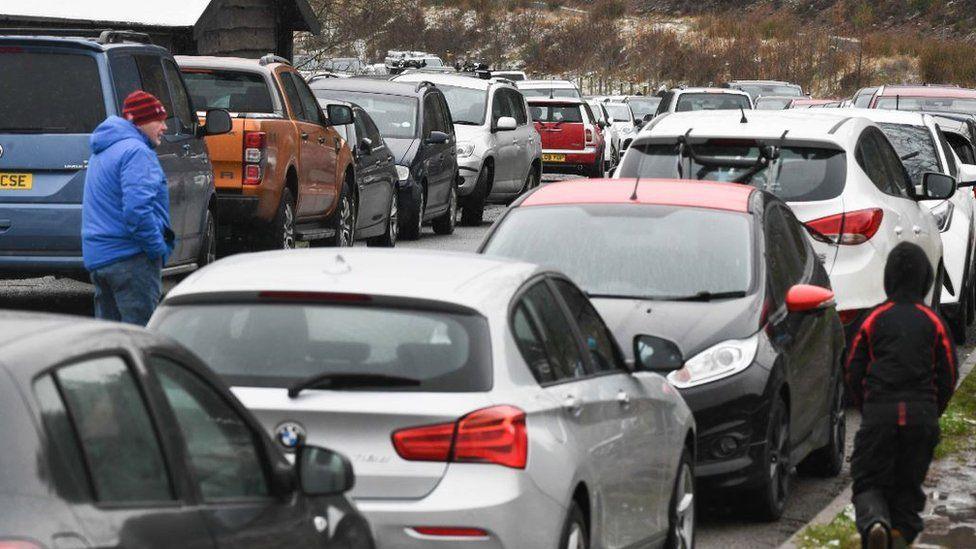Tourism: Wales needs to ditch 'sheep, rain and rugby' brand
- Published
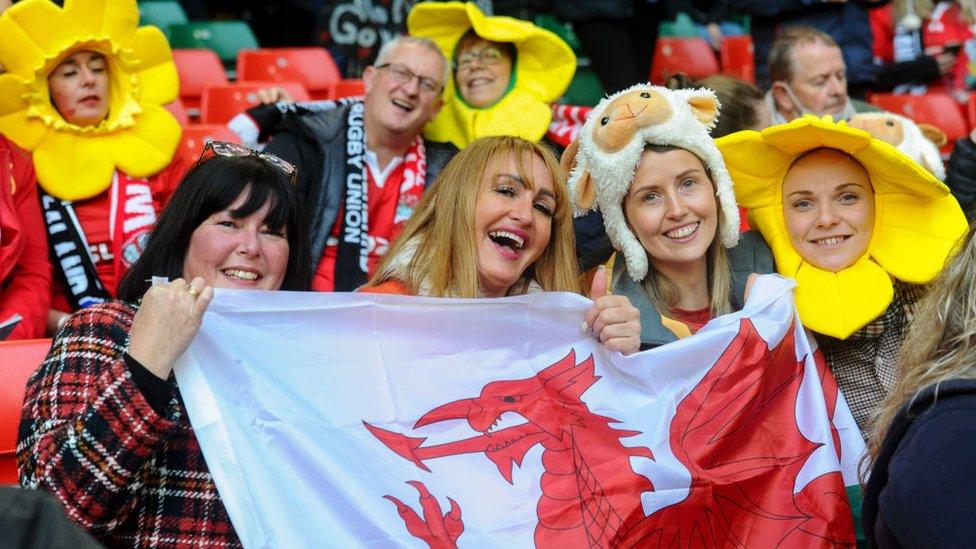
Should Wales move away from sheep, wet weather and rugby motifs?
Wales needs a rebrand in order to get away from "sheep, wet weather and... rugby," tourism industry bosses have said.
Zip World director Sean Taylor made the plea while saying the country should instead promote adventure tourism, food and drink and heritage sites.
Focusing on culture and Welsh would also attract visitors, other bosses told the Welsh Affairs Committee.
Mr Taylor told MPs he thought Wales got "overshadowed quite a bit".
He added: "You've got the Royal Family down in London, you've got tartan and Loch Ness in Scotland and in Ireland you've got Guinness.
"If you look at the brand in Wales it is fairly weak compared to the Irish brand and the Scottish brand in particular.
"I think we definitely need to get away from sheep, wet weather and - even as a president of my local rugby club - rugby as well, because football has come to the fore now."
Other suggestions from tourism bosses included more use of the country's Welsh name Cymru, rather than the English version Wales.
"The language needs to be weaponised as an advantage, not a threat," Mr Taylor added.
"I feel like there's often negative connotations about the language. But our international and English visitors love the use of the Welsh language.
"We get school groups from England and by the time they leave they can say 'bore da', 'prynhawn da', 'croeso'. They love it, they embrace it."
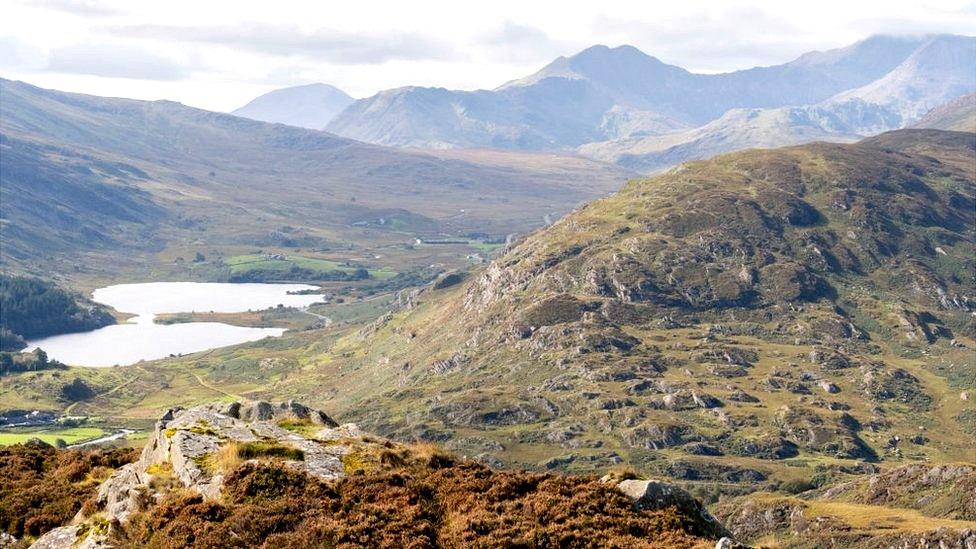
Adventure tourism, such as that on offer in Snowdonia National Park, should be highlighted more, industry leaders say
Zip World now has five locations in Wales, including Penrhyn Quarry, described as the fastest zip line in the world.
Portmeirion Cymru's Ian Roberts said tourists who come to their Italian influenced tourist village near Porthmadog, enjoy hearing Welsh being spoken, hearing that it is vibrant and alive.
"We've always put a strong emphasis on the culture, tradition and the language. Over 90% of the people who work in Portmeirion speak Welsh," he said.
"We think it could be used more, including the use of the term Cymru other than Wales," he added.
The business leaders, who included Paul Lewin from Ffestiniog and Welsh Highland Railway and Penderyn Distillery chief executive Stephen Davies called on the Welsh government to increase its tourism budget.
A spokeswoman for the Welsh government said: "Wales is known as a nation that offers world-leading adventure, creative culture, a thriving language and outstanding protected landscapes.
"The focus of the Cymru Wales brand is on marketing Wales' standout strengths as a country, and showcasing them to people across the world."
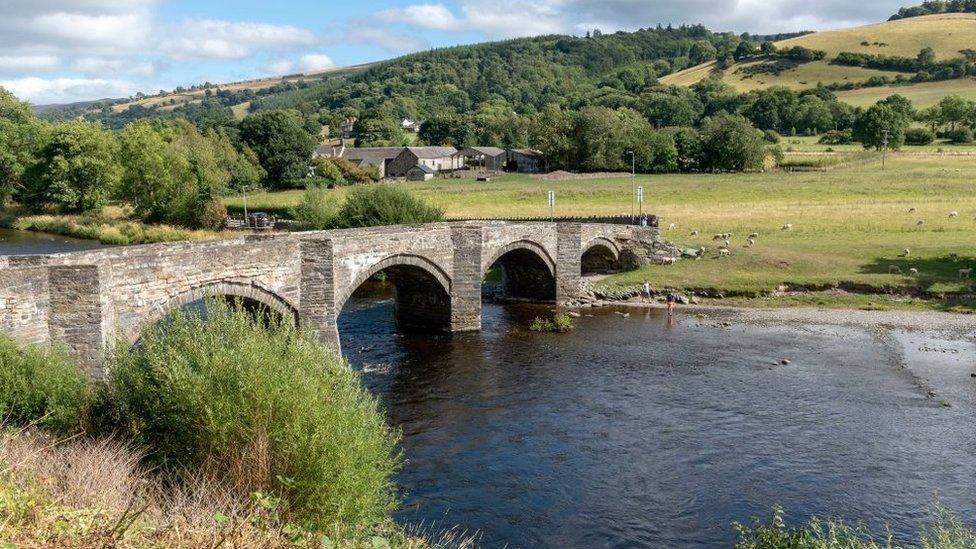
Paul Lewin from FFestiniog and Welsh Highland Railway wants the message to focus more on "the wonderful scenery"
They want better communication about Wales' identity and why people should visit.
The calls come as the latest figures on overseas visitors to Wales show the impact of the Covid pandemic.
There was an 89% drop in overseas visitors staying overnight in Wales in 2021, compared to 2019.
There were 116,000 overnight visits to Wales, according to the International Passenger Survey figures, published by ONS.
Meanwhile, Cardiff was the 17th in the top 20 towns and cities in the UK, outside London, for visits by foreign tourists, with 35,000 overnight stays. This was below Coventry, Luton and Nottingham, but above Sheffield, Chester and Bath. Manchester was top, overtaking Edinburgh for the first time.
Mr Lewin, who manages the UK's longest heritage railway, said: "What is common to all the tourist attractions in Wales is the setting. It is the wonderful environment, the wonderful scenery and how accessible it is compared to many other places."
Penderyn's Mr Davies, who exports Welsh single malt whisky to over 40 countries, said he did not get the sense Wales was "selling itself".
"There's a huge opportunity to improve communication with visitors that do come into Wales, because they've come here, they've made the effort. Let's keep them here or bring them back."

EXPLORE ANGLESEY'S RICH WILDLIFE: Iolo explore Wales’ biggest island by land and sea
ICONIC WELSH PEOPLE, PLACES AND THINGS: Kiri unearths the best clips from the BBC Wales archive

Related topics
- Published24 May 2022
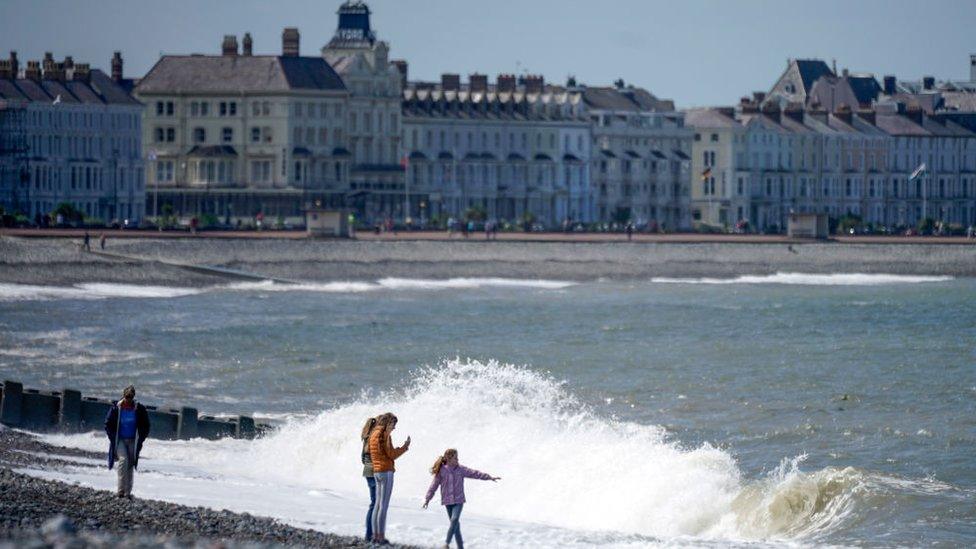
- Published22 May 2022
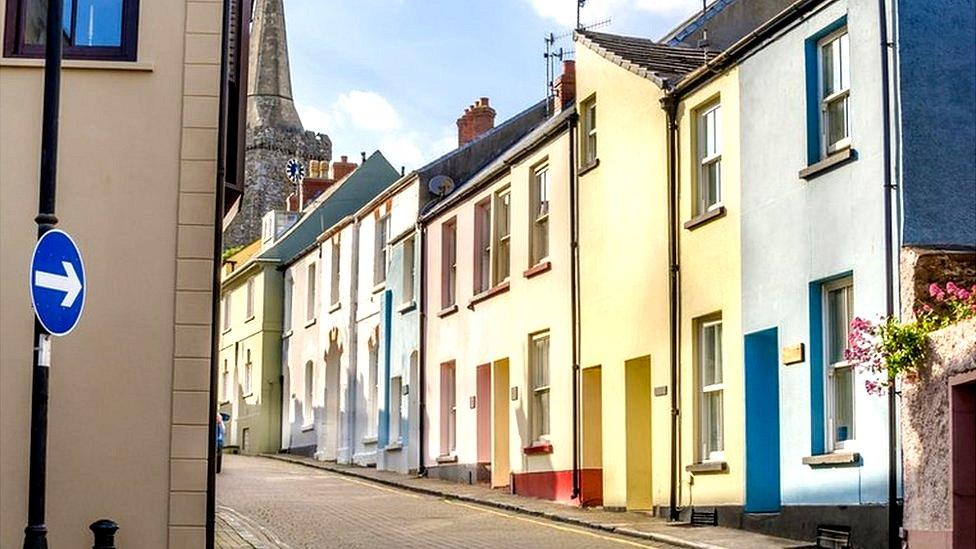
- Published9 May 2022
